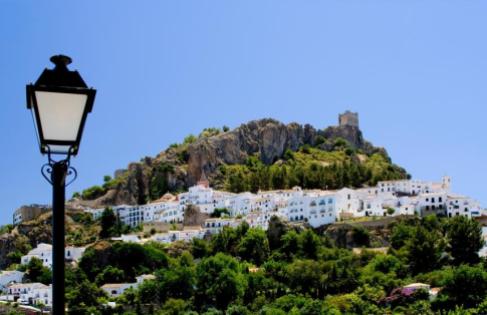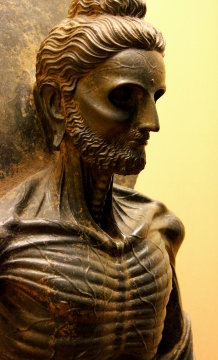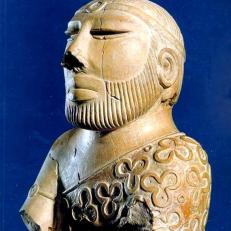Identity
On heritage
“The ground on which we stand is sacred ground. It is the dust and blood of our ancestors.” – Chief Plenty Coups, Crow
Whenever I visit a new city, the first thing I like to do is pay my respects to her oldest monument.
Like the towering 12th century St. Stephen’s Cathedral in Vienna. The ancient, sprawling Palatine Hill in Rome. A ruined Moorish lookout tower in the village of Zahara de la Sierra in Andalusia. The 1000-year old dragon tree on the island of Tenerife.
Or, when I’m back in my hometown Lahore, the 10th century shrine of Ali Hajveri, the city’s patron saint and one of South Asia’s most celebrated sufis.
It’s kind of like how you make it a point to greet elders first at a family gathering, or how you always pop in to say salaam to Aunty Uncle or Daadi Daada when calling at a friend’s.
Why is it considered proper to do this?
Because age, when tempered by experience and good sense, is wisdom. And wisdom commands respect.
Our parents, grandparents and great-grandparents are the pillars of our community, our connection with the past. And much of who we are – our tastes, our temperament, the intonation of our voice, that dimple on the chin – we owe directly to them.
So it is with cultural heritage.
It’s an intangible thing, our relationship with heritage; a deep, spiritual connection that can’t be quantified, only experienced.
Like the feeling of awe you get when entering a breathtaking mosque or cathedral, in all its glazed tiled, stained glass, soaring glory. The wonder of walking through a mind-blowingly modern city like 1st century Pompeii. The peace of contemplating the Fasting Buddha at the Lahore Museum.
Or the tingling horror of seeing before you the torture instruments used during the Spanish Inquisition.
Heritage speaks to us. It moves us, because it’s an intrinsic part of ourselves. It tells us who we are, where we come from and what we’ve done – for better or for worse. Heritage gives us identity.
So when human beings destroy cultural heritage – whether purposefully, as invaders and extremists have done throughout the ages, or out of sheer stupidity and greed, as often happens in Pakistan – they aren’t just blowing up bricks and stones, or splashing white paint on a delicately frescoed tomb.
They’re erasing the identity of a society. By blotting out pieces of the past, they leave us a fragmented, rootless future. They leave us without a story.
Years and years ago, there used to exist a temple here. A sculpture. A library. A place of beauty, intelligence and culture.
But you will never know it. You will never wander its ruined pathways, finger its mossy stones, or feel that inexplicable sense of belonging, the warm pride of knowing, “My ancestors built this. And I am a part of this mysterious, timeless story.”
What will you build on now? Where will you find inspiration? How will you write the next chapter of the story?
I often feel a strong sense of déjà vu when visiting old places. There is power there, the coming together of a thousand wills, of history being constructed, brick by brick and thought by thought. Being in these places, you begin to see things differently; you begin to understand why people look the way they do, why they speak in a certain way, why they create certain things – why they are who they are, for better and for worse.
It’s like seeing old photographs of your grandparents and great-grandparents and starting at the resemblance: “That looks just like me!”
You may not like what you see, but you can’t ignore it’s there.
Cultural heritage is part of our DNA. We have a right to claim it, to cherish it, and interpret it the way we choose.
And we have a duty to preserve it, so our children and their children may also have a sacred place to call their own.
So they may also draw on that ancient repository of stones and memories, be reminded of where their ancestors went wrong – and where they went beautifully right.
So they may continue writing the story.
Farewell, fond 20s! I’m ready to move on
Why do we expect so much of life, and of ourselves? Why do we choose to be unhappy? Some questions pondered, some lessons learnt, some wisdom received
Published in Dawn Blogs, May 26th 2015
Once, when I was an undergraduate at LUMS in Pakistan, we were asked to create “future” CVs for ourselves, imagining where we would be 10 years down the road. According to my calculations, by age 30 I would be an acclaimed international affairs correspondent with Al Jazeera TV. I would also be a certified yoga instructor, the author of an award-winning collection of short stories, and the co-director of a charity school in Pakistan. I would have trekked to the base camp of an 8,000-meter peak (if not summited the peak itself), and I’d be speaking 5 languages like a native, or as we say in Urdu, farr farr.
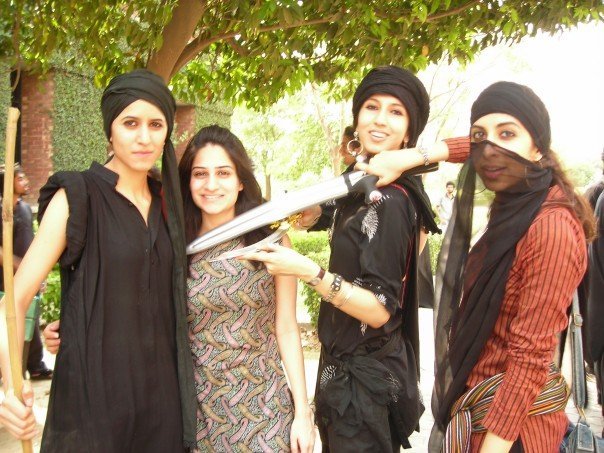
A few weeks ago, I celebrated my 30th birthday. And looking back at that smug, overambitious piece of paper (I still have a copy), what do you suppose I felt? Disappointment, at falling short on pretty much all of my grandiose goals? Guilt, for being lazy, for not doing “enough”, for not “living up to my potential”? Anger, at myself, at people around me, at the circumstances that thwarted my legendary ascent to that 8,000-meter peak and to age 30?
No. I only laughed! Frankly, I couldn’t give a baboon’s butt about goals, objectives, achievements that you could enumerate on a CV, that you could neatly check off from a “bucket list” and be done with. I didn’t care about what I may have expected from life 10 years ago, 5 years ago, even 1 year ago.
I used to care, I used to care a lot. During my 20s, I was beleaguered by that pervasive pressure to “achieve”, all too familiar to us Millennials. Often times, we weren’t even sure of what we wanted to achieve; it could be an important position at a multinational corporation or a big bank, it could be starting our own business, running an NGO, getting a PhD, “making a difference”. Yes, what we wanted most of all was to make a difference, to “change the world”.
I am not a superhero!
I stopped thinking like that some time ago, and it was a conscious decision. I stopped thinking that I could change the world.
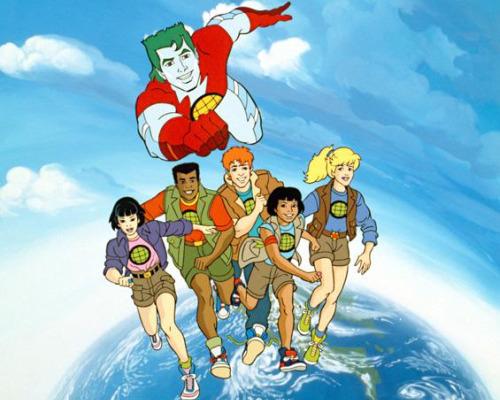
That’s not to say that I became cynical. I just realized that I, as one individual, did not have the power to change or “save” the world. I couldn’t eradicate poverty. I couldn’t stop wars. I couldn’t ensure that every child on the street went to school, that no woman was raped by any man. I couldn’t put an end to meaningless violence, I couldn’t reverse global warming.
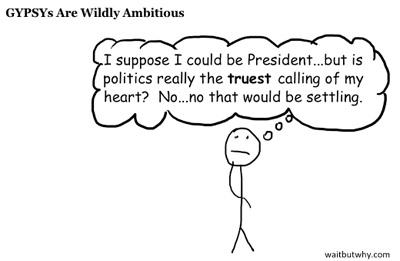 I couldn’t carry through any of this in my own hometown Lahore, let alone the entire world. The world was chockfull of problems, had always been, and would always be. It was the sorry fate of humankind. And to think that you were somehow “special”, that you could clean up a mess that was centuries, millenia in the making just like you’d solve a nifty Math problem, was downright arrogant.
I couldn’t carry through any of this in my own hometown Lahore, let alone the entire world. The world was chockfull of problems, had always been, and would always be. It was the sorry fate of humankind. And to think that you were somehow “special”, that you could clean up a mess that was centuries, millenia in the making just like you’d solve a nifty Math problem, was downright arrogant.
Once in a while, perhaps once in every generation, somebody exceptional came along. Extraordinary people who, by dint of birth, effort, circumstance, and some serendipitous conjunction of the stars, did extraordinary things. The world’s heroes and heroines, revolutionaries and prophets, thinkers and humanitarians, inventors and scientists, artists and writers, whose names we all read in history books. I don’t suppose that any of these great people ever planned on changing the world, or becoming famous. I don’t suppose they wrote about it in their college applications, or scribbled it on their “bucket lists”.
I think they were just going about their lives, one day at a time, doing whatever it was they loved and believed in – not expecting any accolades or honors, not preoccupying themselves too much with “results”, just following their intuition, being themselves.
That’s one thing we all have the power to do; be ourselves. Improve ourselves, and consequently, have a positive effect on everything around us.
It could be something as simple as, say, recycling your trash. Giving a sandwich to the homeless man on your street. Holding open the door for an old lady at the metro station. Lending an ear to a friend who’s had a bad day. Giving somebody an unexpected gift. Teaching somebody a skill, or learning something new yourself. Making friends with somebody from a different religion, ethnicity, culture and country. Making the world a more tolerant, a more peaceful, kinder and happier place by embodying those qualities in your own person.
That was, realistically, the best I could do, and it was enough for me. There was no point in beating yourself up over “failed” ambitions or irrational expectations, neither your own nor those of others.
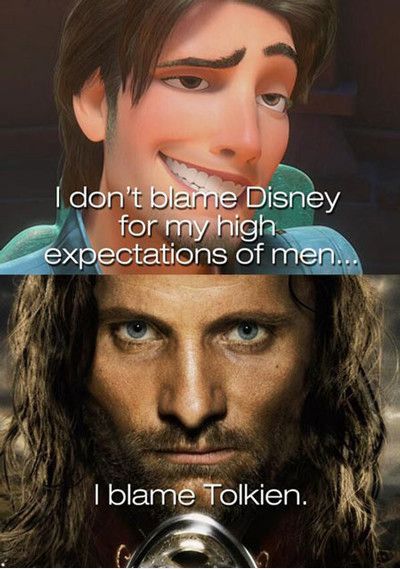
I am not a martyr or a saint!
The expectations of others, or “What will people think!”. We’ve all been oppressed by them – from something as trivial as buying the “right” gift for a birthday party, “having” to attend a cousin’s friend’s brother’s wedding or wearing the “right” outfit to a family lunch, to being emotionally coerced into a marriage by your parents, putting up with an abusive husband, sticking with a job that daily sucks the life out of you. Why? Because that’s what you’re expected to do. That’s what a good, responsible, respectable man or woman does. A good, responsible, respectable person makes everybody happy – everybody except himself. A good person is a martyr.
Now, there may be people out there who would gladly suffer all these societal tortures, and many more, out of a genuine sense of duty, or out of pure selflessness. But most of us are not like that. We are not selfless. We are not saints. We may like to think we are, but deep down inside, where nobody can hear our true thoughts, we ask ourselves: “Why am I doing this? Is it worth it? I’m fulfilling all my ‘duties’, but why am I still so miserable?”
There’s something perversely romantic about misery, the notion of sacrificing your life for the sake of others, for your children, parents, friends, your community and country, without a thought to your own wishes and desires. Whether or not you enjoy being cast in that role, society will definitely love you for it.
On the other hand, society will not take kindly to seeing you happy. That’s just shameless. And, if you insist on being so brazenly optimistic, then at least pretend to have something to gripe about!
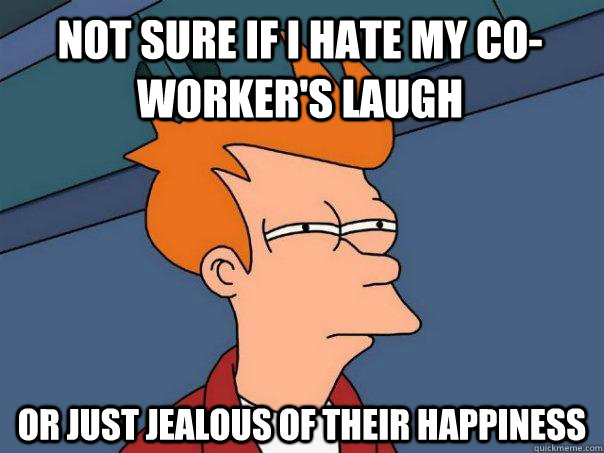
This kind of thinking is typical among desis (South Asians), and I was done with it. If your actions didn’t spring from love or genuine kindness, if your only motivation was to “live up to” some vague ideal or ill-conceived expectation, the fear of what people might say, then those actions were worth very little. It was better to spare yourself and the people around you the charade. The fact was, you couldn’t make anybody happy, truly happy – not your parents, not your partner, not your kids nor colleagues, nor posterity – unless you were happy and fulfilled yourself. It was not always the simpler choice; oftentimes, it was easier to be miserable, it was easier to be a doormat than to stand up for your inviolable right to happiness. But it was a choice you made.
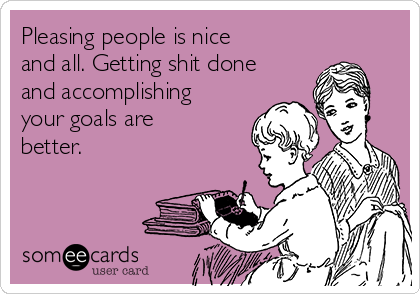
I am not a victim
So far, I’ve led a pretty privileged life. I’ve never known hunger, or homelessness, or direct violence or abuse, none of the unimaginable hardships that form reality for millions of people around the world. All of us, sitting at our laptops or scrolling down our smart phones, are familiar with the ordinary struggles of human existence – death and sickness in the family, relationship troubles, financial crises – but nothing as shattering as the experience of a child in a war-torn country, a family who has lost everything in a natural disaster, the victim of racism or religious persecution, a refugee, an addict, a prisoner, a slave.
Given the enormous advantages that we already have, there is really no excuse for us to feel sorry for ourselves, or vainly blame others for our own unhappiness. We are not victims, and we are certainly not helpless. We are lucky enough to be able to choose what we want to do, how we want to live. We are lucky enough to be able to make our own decisions, chart our own priorities, control the course of our lives with some degree of certainty (putting aside a percentage for qismat, of course). It could be, for example, choosing to spend on a holiday rather than a new piece of jewelry, or exercising instead of watching TV. Or it could be something more far-reaching, like deciding to move to a new country, taking on a new job, having a baby.
The bottom line is, we all are blessed. We all have gifts, we all have dreams, and most importantly, we all have volition. We just need to muster up the courage to pull those tricks out from our magic bags and put them to use, in spite ourselves.
I am rather insignificant
So, what have I learnt about life after 30 years? It doesn’t seem like a whole lot, even by earthly accounts. In the universal scheme of things, it’s embarrassingly negligible…
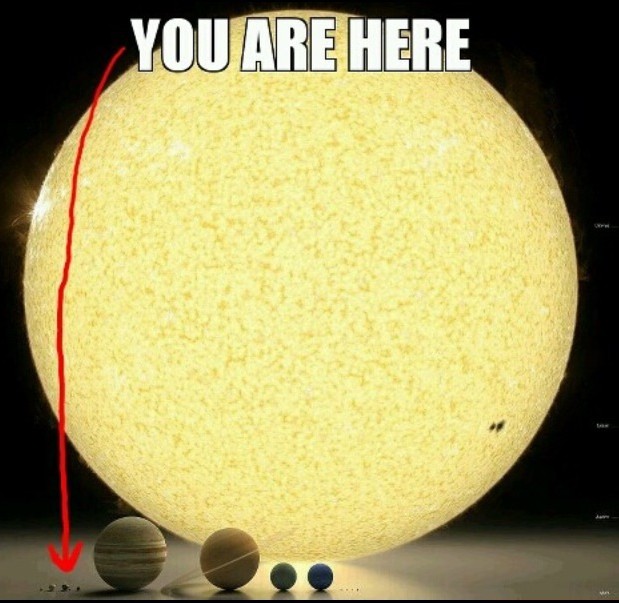
But, keeping things relative, as of now I feel that life is really about living. It’s not about achieving lofty goals, building lofty monuments, racking up positions, bank accounts, cars and TVs and diamonds. It’s not about pleasing others, being a hero, a saint or a superstar, devoting your life to any one cause.
It’s about finding contentment, finding beauty, finding peace in the little things. The day-to-day achievements, the seemingly mundane. You learnt a new word today. You tried a new dish. You finished an assignment before deadline. You took your kids to the movies. You caught up with an old friend. You explored a new neighborhood. You danced under the trees.
Your expectations of yourself need not be grander. Yes, you may wish to write a book one day, or set up a charity school – I know I do! I haven’t forgotten those dreams. But I’m no longer in a rush to accomplish them, nor am I going to let them dictate or frustrate my present.
I look…different!
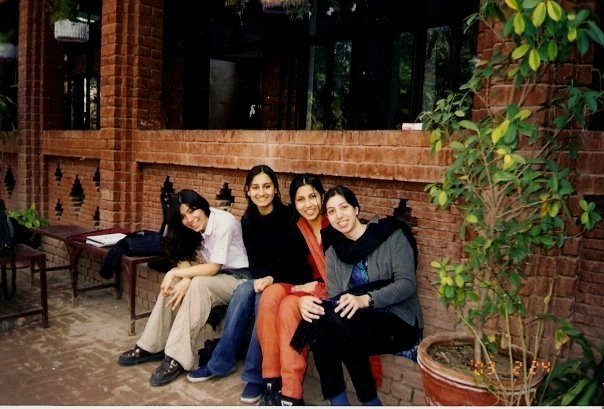
There was a time when I’d walk out of the house with a squeaky clean face and just a dash of kajal in the eyes, ready to go to college, a dinner or a wedding; now, I use makeup on a regular basis. I even wear lipstick, something I found utterly loathsome at 20! The salon girl makes it a point to count out the growing number of white hairs on my head every time I go for a trim, shaking her head disapprovingly, “But why don’t you dye???” I find myself flipping magazines at various doctors’ clinics much more often, thanks to an array of itinerant physical pains. I’ve become more attentive to what I eat, trying my best to choose a salad or a piece of fruit over a cupcake or a toast slathered with butter and marmalade; before, I couldn’t be bothered about the lumps of sodium in ChinChin Chinaman’s hot and sour soup, or the pools of grease in the LUMS cafeteria chicken karhai.
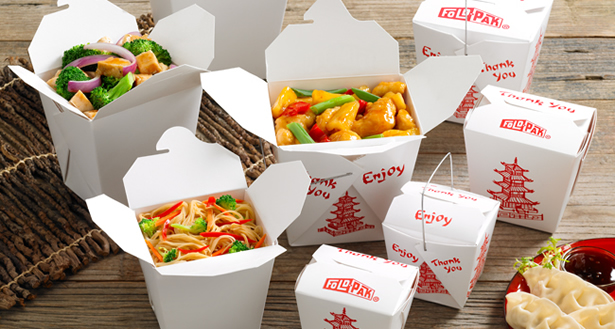
Then there are the inner changes, the ones you can’t really see; I feel happy, but in a calmer way. I’m not in a hurry to go anywhere, do anything, be anyone. I don’t care as much of what people think of me, and I’m a lot less concerned about offending somebody over a nicety. The smudges of shyness and self-consciousness that I had retained from teenage into my 20s have all but dissipated – and life is so much easier without them! I avoid comparing myself with others, I try not to be overly self-critical (a family trait), and most of all, I remind myself to be grateful, and not take life too seriously.
And what of the idealistic goals of that fictional 10-year old CV? Well, I didn’t fall off the mark entirely when I made those predictions. So I’m not a correspondent with Al Jazeera TV, but I did work at Democracy Now, the most excellent independent TV news program in the U.S. (in my opinion!). I’m not a certified yoga instructor, but I am an uncertified Bollywood dance teacher! There’s no collection of short stories (let alone award-winning), but there is an in-progress research project and an intermittent blog. I’m not the director of any charity, but I basically do volunteer work for a living, from museums to bookstores to archaeology pits. I’d say I’ve got 2 languages down in the farr farr category, with a 3rd one in the works; and, instead of summiting the base camp of an 8,000 meter peak, I chose to throw myself out of a perfectly good airplane 1,000 meters in the sky (you do some ridiculous things in your 20s). So, all in all, I’m pretty satisfied with the 30-year report card!
As should you be with yours! There’s no need to feel despondent and have regrets about what you could have done and didn’t do; and there’s no need to panic that your “best years” are flying by so you better make “the most” of them. With good health and a little bit of qismat, every year, every day can be your best, if decide to make it so.
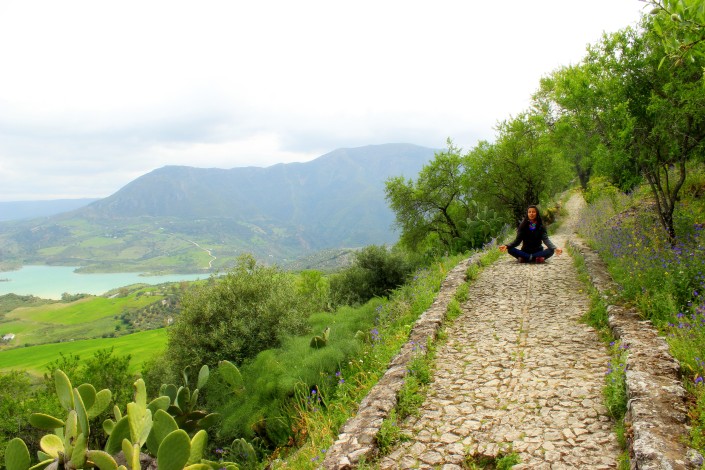
Thoughts on Leaving Pakistan
Published in the The Friday Times Blog, October 10th 2013
The last time I put thoughts to paper was a year and a half ago, when Z and I moved back to Pakistan from the U.S. It happened very suddenly, under very sad circumstances, and there we were – thrust into a disorienting new life, filling roles we had never anticipated, never wanted, inhabiting, once again, the cloistered, uninspiring world of Lahore’s privileged class.
Much elapsed during the past 18 months in Lahore – much to rejoice and remember. Engagements, bridal showers, weddings. Baby showers, and babies! Farewell parties and welcome-back parties, birthday parties and Pictionary parties.
PTI fever, elections, and Pakistan’s first peaceful political transition. Cliff-diving in Khanpur under a shower of shooting stars, dancing arm-and-arm with Kalash women as spring blossomed in the Hindukush, tracking brown bears and chasing golden marmots in the unearthly plains of Deosai.

I rediscovered my love of history, of abandoned old places that teemed with a thousand stories and ghosts and memories, thanks to a research job at LUMS. I spent many days wandering the cool corridors of Lahore Museum, many hours contemplating the uncanny beauty of the Fasting Siddhartha, whom I had the privilege of photographing up-close. I stood beneath the most prodigious tree in the world in Harappa. I got down on my knees with a shovel and brush during a student archaeological excavation in Taxila, personally recovering the 2, 000-year old terracotta bowl of a Gandhara Buddhist monk.

But, there was also dissatisfaction. Frustration. Restlessness. When we were not travelling, we were in Lahore. And Lahore was, well, warm. Convenient. Static. Living there again was like a replay of our childhood; like watching a favourite old movie on repeat. After a while it got monotonous, somewhat annoying, and a little disappointing.
In Lahore, I could see what the trajectory of my life would be, the next 10 years down. It was all planned out, neatly copied from upper-class society’s handbook, with but minor divergences here and there.
It wasn’t a bad plan. In fact, it was a perfectly good, even cushy plan, one that would have made a lot of people quite happy.
Not me.
There were other things, too, about Lahore, and about Pakistan, things that had bothered me growing up but now seemed magnified to alarming proportions – the incomprehensible extremes of wealth and want, the insurmountable divisiveness of class, and, most worrying of all, the overwhelming self-righteousness and religiosity.
You could not escape it. Everywhere, from TV talk shows to political rallies, drawing rooms to doctors’ clinics, there was a national fixation with religion. Everybody, it seemed, was desperate to convince others – and themselves – of their absolute piety, their A+ scorecard-of-duties-towards-God, their superficial Muslim-ness. Instead of the genuine, unselfconscious goodness that shines through truly spiritual people, in Pakistanis I just saw fear. Religion for them wasn’t about peace, and love, and knowledge. Religion was base. Religion was social security. Religion was a tool of power.
I wanted to say to these superficial Muslims, to all Pakistanis: Just look at the state of our country. Do you really believe that religion has helped us? Has it at any level, be it individual, societal or state, improved the country? Has it alleviated poverty, reduced rape and murder, mitigated corruption?
Have we as a nation achieved anything positive, anything progressive, in the suffocating garb of “religion”?
No. On the contrary, we, as a nation, have become more intolerant, more oppressive, more barbaric, as our outward religious zeal reaches new heights.
And we still do not realize it. The Matric-fail maulvi at the local mosque still preaches that a woman wearing jeans in public is jahannumi, Hell-bound , the TV reporter interviewing an old peasant who has lost his home in a flood wants to know if he kept his Ramzaan fasts, and that educated, apparently “modern” aunty you met at a family dinner launches into a sermon that the reason Pakistan is beset with crises is because we don’t pray enough.
That was the most terrifying thing I found about Lahore, and about Pakistan. It had become a place where no other framework for discussion about the future of the country, about anything at all, was possible. We were mired in religion. We were stuck. We were deeply and hopelessly stuck.
As for the people who thought differently, the elite and “enlightened” class that I belonged to, they responded to the onslaught by retreating further and further into their elite Matrix – a sequestered, protected world where they met up with friends over Mocha Cappuccinos at trendy New York-style cafes, where they shopped for designer Italian handbags in centrally air-conditioned shopping malls, where their children spoke English with American accents and dressed up for Halloween, where alcohol flowed at raucous dance parties behind the gates of a sprawling farmhouse.
It was a parallel universe, where we all lived free, modern lives, like citizens of a free, modern country, utterly disconnected from the “other” Pakistan, the bigger Pakistan, and for all intents and purposes, the “real” Pakistan. Yet perhaps it was our only survival, the only way to keep sane and creative and happy for those of us who chose to live in our native country.
But I could not reconcile myself with it. I found it schizophrenic. Perhaps living abroad had changed me too much. I could not find balance, I could not find peace in Lahore.
So when Z applied to and got selected for a European Union PhD scholarship based in Madrid, Spain, I was thrilled – and a little relieved. Was I looking for an escape? Maybe. Was that the only solution? I don’t know.
When we left Lahore, on that eerie twilight flight in August, our lives packed into just one suitcase and backpack each, it was bittersweet. I was sad to say goodbye to loved ones, to friends and family whom I had spent such wonderful moments with in the past year and a half. I would miss being a part of their lives. And I would miss the incomparable natural beauty of Pakistan – beauty and heritage that is disappearing day by day due to neglect and ignorance.
Yet, I knew that I had to go. I knew that staying in Lahore – “settling for” Lahore – buying joras from Khaadi, attending tea parties, managing servants, the odd freelancing or part-time job at LUMS, was not going to make me happy. And we could not depend on the love of family and friends to sustain us forever. At the end of the day, everybody had their own lives to lead, their own paths to carve, their own hearts to follow.
And that is how we ended up in Madrid.
Sitting here in our apartment, a cozy, parquet-floored 1-bedroom affair, I can hear the babble of excited young voices below the window, a medley of idioms and accents; the clink of glasses and clatter of dishes from neighbouring restaurants; the smoky strumming of a flamenco guitar, the wheezy chorus of an accordion; the cries of Nigerian hawkers and Bengali street-peddlers, and the low hum of the occasional taxi cab, rolling along the cobbled streets of this lively old pedestrian barrio of the Spanish capital.
A new city, new adventures, new memories.

Thoughts on Moving Back to Pakistan
Published in the Express Tribune Blog, May 21st 2012
When my husband and I moved to the U.S., we knew that it wasn’t for good. Contrary to everybody’s assumptions, we knew that we were going to return to Pakistan, at some point in the meandering, distant future.
But we never imagined that it would be now, so suddenly, so unexpectedly, and under such sad circumstances.
As I sit here in the study of my in-laws house in Lahore this sunny April afternoon, looking out on a sumptuous garden decked with purple petunias, crimson lilies, snow-white roses and bright bougainvillea, listening to the chipper of birds and the low chatter of servants in the kitchen, New York seems like another planet – another time, another dimension, a past life that may or may not have even happened.
So many times we discussed this, our move back to Pakistan, my husband and I. Living in America had unalterably changed us; there, in our little 1-bedroom apartment complete with leaky faucets, mousey kitchens and batty landlords, independent for the first time, we realized how unnecessarily indulgent and painfully isolated our lives in Pakistan had been. While Occupy Wall Street was raging on in New York, we used to joke with each other about being the “covert Pakistani 1%” in the enthusiastic, indignant ranks of the “American 99%”.
“But I don’t think I could go back to living like the 1% or 5% in Pakistan, the way we grew up,” I used to say. “I hate the idea of being waited on by a troop of servants when I know I’m perfectly capable of doing their chores myself. I hate the idea of living in a 2-story, 4-bedroom mansion while a whole family sleeps, eats, dresses in a single cramped ‘quarter’, dusting and sweeping a dozen rooms that nobody uses. I just could not live in such a disparate situation.”
It wasn’t just upper-class guilt and a stubborn sense of egalitarianism rearing its head. There was also something else – the beauty and indelible satisfaction of doing things yourself, of building your physical world with your own hands. Of chopping the garlic, peeling the onion, painting the wall, scrubbing the bathtub, carrying a nice heavy bag of groceries upstairs to your apartment.
Sure, I complained about it sometimes, but I was secretly proud of it too. For somebody who had never even fried an egg by herself, let alone stand in long, sweaty queues at the Post Office or trudge a mile to do laundry, the daily struggle was a revelation. It was something you shared with the people around you. You felt a camaraderie with the strangers on the subway, the families who shopped at your neighborhood grocery store, the cab drivers, the receptionists, the waiters at your favourite restaurant. No matter who they were, where they came from or what work they did, you had something more meaningful in common with them than just the colour of your passport. Call it class blindness or class ignorance, I loved the feeling.
And, naively, I believed we could replicate that sense of camaraderie and egalitarianism with the ‘common man’, in Pakistan. That we could forge an alternative, healthier, more connected way of living, different from that of our class and our our parents; we could live in a smaller house or apartment, for starters. We could learn to take public buses, and walk to the bazaar instead of taking the car or sending a servant. We were young – we didn’t need servants obsequiously lingering about all day to feed our lethargy. If we had money to spare, we could put a poor man or woman through school instead, or a training course for a skill he or she had always wanted. We could live comfortably, but simply, with less material things, less “luxuries”, fewer TVs and cars and expensive dinner sets. It was possible, I insisted. We could reinvent ourselves in Lahore too!
My husband was skeptical, realistic. “We are who we are in Pakistan – the privileged. And it’s pointless to try to be anything else, because that can’t change. We just have to do the best we can in the roles we’ve been given.”
I didn’t agree. I believed every person had the power to change their situation, even if in a very small way.
But now that we’re actually back in Pakistan, all that seems like selfish banter, a pipe dream, wholly insignificant in the larger picture. Suddenly, we find ourselves thrown into roles, situations and relationships that we never envisioned, never planned, never wanted. We find ourselves perpetuating the status quo, the class consciousness we wanted to break. I feel the Lahore lethargy seeping into my life, my mind, slowly sapping the vigour and determination I felt before. I don’t want to walk to Al Fatah anymore, people will stare. I don’t want to take the public bus, it’ll be hot and uncomfortable. I don’t want to iron my own clothes, because I’d rather sit at the computer or read a book or take a nap; besides, that’s what the maid is there for…right?
I often wish I was immune, the way people are, to the unpalatable realities we live with in Pakistan. I wish I could authoritatively give orders to the servants like they’re used to, shoo away that pesky beggar like she’s used to, tip the Al Fatah boy with a crumpled 20 rupee note because you have to give something, gloat over the few hundred rupees you “saved” from the cloth merchant because you always get a bargain – I wish I could occupy the upper-class woman’s “role” with ease and flair, but if after 22+ years of living in Pakistan I’m still not able to do it without extreme discomfort , will I ever be?
That’s not me. And I don’t want to be that person. I don’t want that “power”, that patronizing, suffocating power, and the guilt that comes with it.
Perhaps it’s impossible after all, to create that kind of life in Pakistan – the kind of life we had in America. For all its problems and its flaws, life there taught us not to take even the basics for granted. It taught us the value of hard work and instilled in us a sense of equality and humanity we had never experienced in Pakistan – a kind of class blindness. We could live in any sort of neighbourhood we chose, make friends with anyone we wanted, eat and shop where we liked, do any kind of job; and there was no judgment, no binding social norms and family legacies to contend with.
It’s true that there will always be someone who is less privileged than you. But the divide need not be so wide, so unjust, so tragic it makes you want to cry, if you only think for a moment about the difference between you and the man who cooks for you in the heat of the kitchen all day. I would rather be the 99% than the 1%, any day, in Pakistan or any other place – if only I had the choice.
Occupy Wall Street

I loved going to protests as a student. Be it a rally of solidarity with Palestine, a march against the U.S. invasion of Iraq or Emergency Law in Pakistan, or a demonstration to close down Guantanamo, I was there, banner in hand, a chant on my lips. It was important, I thought, for people to express their concern, their outrage, at an injustice committed to them, in their name, or perhaps not directly affecting them at all – because if you couldn’t do anything about it, you could at least say something. That was a moral obligation, even if it made no difference to the powers-that-be, even if it did not stop the wars or the drone attacks or the repression and brutality. As the famous African-American writer and former slave Frederick Douglass said, “Power concedes nothing without a demand. It never did and it never will.”
So why aren’t I out there at Liberty Plaza for Occupy Wall Street? It’s been 5 weeks since the encampment started, and I’ve only visited twice. When we talk about it at work, I try to avoid mentioning this embarrassing fact. Why is it, as the largest and most dynamic protest movement in America since the Civil Rights and Anti-War resistance of the 1960s, the closest thing to an “American” Spring, unfolds right here in New York City, that I have no interest in being there, in participating in history?
I’ve puzzled over this question myself many times. I mean, I understand what they’re protesting – economic and social inequality, and a government that is beholden to corporations rather than people. That, and everything else that’s wrong with the American system, from healthcare to unemployment to the illegal wars. And I agree with them.
But where is my fervor? Where is my passion, my “earnest desire to save the world“?

Last weekend, we were at a tea party at a friend’s place, talking to a fellow Pakistani, a little older than us, who had been living in New York for the past 6 years. He was telling us about a recent trip to Lahore to see his ailing father.
“And you know what’s the hardest thing for us first-generation expatriates? Not being there for our parents in their old age…”
I nodded sympathetically, though in fact I had stopped listening to him when he said “us first-generation expatriates”. “What?” I thought to myself, “I’m not a first-generation expatriate, nor do I intend to be one! I’m going to go back to Pakistan!”
And I think that’s when I got my answer, the explanation for my lack of motivation for participating in Occupy Wall Street. As much as I support the movement, in spirit and letter, I do not feel it’s my struggle. I do not feel it’s my part in history to play. Simply because, I’m not American, and I don’t plan on becoming American.
I know other Pakistanis and foreign-born New Yorkers who are thrilled about the movement, spending days at Liberty Plaza with the other protesters, marching alongside the students, teachers, workers and citizens of all classes and color at their various demonstrations. But they are like the guy we met at the tea party, those who have accepted their immigrant status and the fact that they are here to stay. They’ve left their native countries, shed their old accents, looking for homes to buy. They belong to America now. This is where their children will grow up. And so, they have a cause, they have a reason – they are part of that 99%. They can chant at the marches, they can sing along with Tom Morello when he performed “This Land is Your Land” at the encampment this afternoon, they can hold signs that say “We want our country back!” and mean it.

Not so for me. I feel like a traveler, merely in passage – observing the goings-on of this great, crazy city, appreciating the good and the bad, the beautiful and the ugly, and moving on – curious but detached. I live here, but I don’t belong here.
Does that somehow absolve me from being an active member of the community? I don’t know. Have I become less idealistic than I used to be, a little more practical, self-interested, or just plain lazy? I hope not.
Do I need to be 17 again to feel the same fervor, the same passion, the same desire to change the world? Maybe, maybe not.
But Occupy Wall Street is not my moment, my history. It’s America’s moment. And, no matter what happens tomorrow, a week from now, a month from now, even if society is ostensibly as unequal as it was on September 17th – at least you spoke out against it. At least you demanded. That can never be in vain.
Lingering Fragrance
She needed some green in her apartment.
Before she bought furniture, she was at the flower shop – a subconscious evocation of a fecund childhood, romping in gardens, rolling in lawns, clambering mango trees, picking flowers in the morning for the breakfast table…
“Philodendrons, lilies, ferns, azaleas, bonsai…”
Hmm. She spends long minutes gazing at each plant, fingering the leaves, feeling the texture, inhaling its aroma.
“I’m sorry, I just can’t decide!” she smiles apologetically at the Chinese lady behind the counter. “Everything is lovely, but…” What do I want?
Then, among the flowering pots, in a tangle of pink, yellow, purple, red, blue, she spies a familiar star-shaped white…
She blinks, startled. Is it? It can’t be…bending forward, she buries her face in the modest little shrub bearing the two pale-faced flowers and takes a deep breath…
Suddenly, she’s not in Brooklyn.
She’s in a garden in Lahore on a warm summer’s night. The grass is damp from the afternoon rain. Crickets and other invisible creatures of the dusk trill madly in the bushes, and a velvety breeze rustles in the bougainvillea creepers and Gulmohar above, filling the air with a shower of orange and fuchsia…
It smells sweet, but a subtle kind of sweetness – of budding love, and clasping a dear one’s moist hand, of late-night drives and dewy white bracelets bought from the barefoot little boy on the curbside, of cooing pigeons and clouds of fluttering wings on the rooftop, of twinkling black eyes rimmed with kajal, white blooms wreathed in black hair, and the enveloping scent of flowers in a bride’s bedroom…
“So you want the jasmine, miss?” The Chinese lady grins, her cropped black head nodding vigorously, round black spectacles bouncing on her nose.
Jasmine! Motia…
“Yes, I’ll take the jasmine,” she nods vigorously back.
It sits on a windowsill in her apartment, in a modest little green pot – spreading its delicate, memory-laden perfume over the folds of her new life, a graceful remembrance, a lingering fragrance of the past.
Change
Humans are such creatures of habit.
We yearn for change, for tides and storms to break the uniformity of our days.
But when change comes, we recoil; we are unnerved, thrown into disarray, suddenly clinging to what we know, what is familiar.
Whether a change in city, neighbourhood, house, colleagues, friends.
Even the arrangement of books on a shelf, or spices in the kitchen cupboard – it agitates us.
Maybe it’s a sign of aging. Or maybe it’s just me, an earthbound Taurus.
The sea is beautiful, but standing on the shore looking out upon the interminable flatness, the ceaseless motion, I am intimidated. The sea does not calm me.
I prefer land, the solidity of a mountain, the rootedness of a good weathered tree – feet firm on the earth yet a head in the sky, nodding in the breeze, whispering leafy music, growing stronger, reaching higher.
I wish to be like that tree – not the water, not the ocean, heaved and hurled about with its vagaries – but to mature with the seasons, to sing with the clouds, to know my own depth.
When I was younger, the idea of being a carefree, freewheeling itinerant excited me – it was romantic, it was adventurous, it was what the heroines in my favourite novels were like – and a part of me still clings to that notion.
But a bigger part has accepted that I am earthbound – I am not not made of air, or fire, or water, but of deep, dense, redolent earth. I need to sow, to nest, to reap, to have spontaneity with order, to keep the scissors in the right drawer, to adore a particular film, writer, song, person; to be attached.
New York is becoming home.
Of New York Spring And Other Things

Published in the Express Tribune Blog, May 24th 2011
Growing up in Lahore, the monsoon was my favourite season – those muggy, motionless afternoons when the air suddenly exploded into a river of orange rumbling down from the sky, leaving jungles in its wake. In the Bay Area, every balmy day of the year was beautiful, except for the miserable characterless spluttering they called “rain”.
In Ithaca, my favorite season was Autumn – a firedance in the sky, bold and blazing, curling flames at your feet – and in New York, it has to be spring, the teenage of nature, blooming poetry from every stem, every lilting branch, a breathtaking ballet of pink and white to melt the numbest of hearts.
On such a blossomy New York morning last week, my colleague Ryan and I were at Ground Zero, jostling through hundreds of New Yorkers and out-of-towners to catch a glimspe of President Obama as he arrived to lay a wreath at the September 11th Memorial Site, giving symbolic “closure” to the victims and families of the 9/11 attacks following Osama bin Laden’s death.
We didn’t see him, not even a fluttering hand through a darkened car window. But Obama became irrelevant once we actually started talking to people and recording their reactions to the news.
Reactions were predictable: One African-American woman beamed with pride that Obama had been in office “to do this urgent and important duty”. A man who had lost four friends in 9/11 said he felt a sense of “relief” and “joy” beyond words; a young Latino-American who had recently joined the New York National Guard said that Osama’s death was a source of “unity” for the people of New York, that it showed “how Americans come, in all shapes and forms, whatever nationality you are, whatever colour you, you come as one.”
But what was unpredictable was these people’s, these ordinary, middle-class, tax-paying people’s calm acceptance of the fact that yes, this “war” was “not going to end with the death of one person”, and, more disturbingly, that it needed to go on, that it should go on. In the words of one 67-year old ex-Marine, “We have to be there in all of these countries to assist…so we can crush these people when they come in to try and hurt us. It’s not over.”
While Ryan asked the questions and I filmed behind the camera, I thought about the questions I would have liked to asked these people: “But do you know the real victims of your country’s fallacious war? Do you know who actually pays the price? What do you have to say to the families of the tens of thousands of innocent men, women and children killed in Afghanistan, in Iraq, in Pakistan because of this war? Were their lives less valuable than the 3,000 Americans who died here 10 years ago? Do you not see that what you’re calling ‘patriotism’ and ‘duty’ is decimating entire societies, entire nations as we speak?”
I said nothing of the sort. I was a journalist, and Pakistani on top of that, and the last thing I wanted to in that sort of crowd was get into an argument.
Turns out, somebody else was there to do it for me – a lanky, bespectacled and very articulate white dude by the name of Sander Hicks, founder of the “Truth Party”, a grassroots political group that believes in exposing, among other things, that 9/11 was a hoax. Wearing a black T-shirt with the words “9/11 Is A F****** Lie!” emblazoned on the front, Hicks shouted maniacally but fearlessly to the crowd, “Why am I here? Am I here to celebrate and validate a murder? Without a trial, without due process? Or am I here to think about what is really happening in our country? Do we justify war and torture based on 10 years of lies? I say no! And I don’t care if there’s a million people here saying I’m an a**hole, just for standing up for peace and truth!”
I’m still surprised that he got away with saying that, and a lot more, without even a scratch, though there were several jingos in the crowd who would’ve liked nothing better than give the provocative Hicks a square punch in the jaw. But shouting back “A** hole!” is about as far as they let their anger go.
Then, in the middle of the fray, a red-faced, white-mustachioed little man broke in. Wearing a black leather jacket covered in Vietnam insignia, he cried in a thick Texan drawl: “You know what I would’ve done if I were President when 9/11 happened? I would’ve nuked the entire Middle East, starting with Mecca!”
So far that day, I had been watching and listening to everybody almost in the third person, a perfectly neutral body. But at those words, I felt my heart plummet like it would at a vertical drop on a Seven Flags rollercoaster, and a row of goosebumps shot up my spine as if I were suddenly caught in an Arctic gale wearing a T-shirt. I looked up from the camera. My eyes stung; I thought I was going to cry.
It was pure reflex. Something essential and sacrosanct, seeded deep in my soul, had been momentarily convulsed, and at that moment I could’ve clawed out the old geezer’s eyes.
There was a collective gasp from the crowd, and people were quick to admonish, “No, no, that’s crazy!”, “Not all Muslims are bad!”. Clearly, the guy was a loony, and it would’ve been stupid to take anything he said seriously. But his words stayed with me long after his black leather jacket disappeared into New York’s hubbub of loonies, and I thought, “So this is how it feels – to be on the ‘other side’ of extremism?”
We’ve had plenty loonies from our part of the world dispense similar tirades about the West, about the U.S., Europe or Israel – and God knows I’m not a fan of those parts of the world or their foreign policies. But to an ordinary citizen, who has as little control over what their government does as we do over ours, how would it feel, to be so sweepingly abused, to hear people talk about obliterating our very existence, burning flags and defacing temples as if it would have no consequences, as if it would offend or incite nobody; even for someone like me, deeply suspect of nationalism and all other -isms in general, I admit that it would hurt – that it does hurt.
It’s complicated. It’s complicated when imperialism is involved, when capitalism and neo-colonialism is involved, when there is a legitimate anger and resentment and struggle for justice, like in Palestine, or Iraq, Afghanistan and Pakistan. It’s difficult to talk without the invective, without the bitterness, when you have been truly wronged; but all I can say is, let’s let humanity win.
That’s all we have, to keep us alive and save us from total catastrophe. At the end of the day, it’s the ordinary citizen’s sympathies and consicence that we can appeal to, we can touch; it’s their ordinary humanity that we can depend on, not any politician’s or government’s. Let’s not sacrifice that, no matter which ‘side’ we come from.




